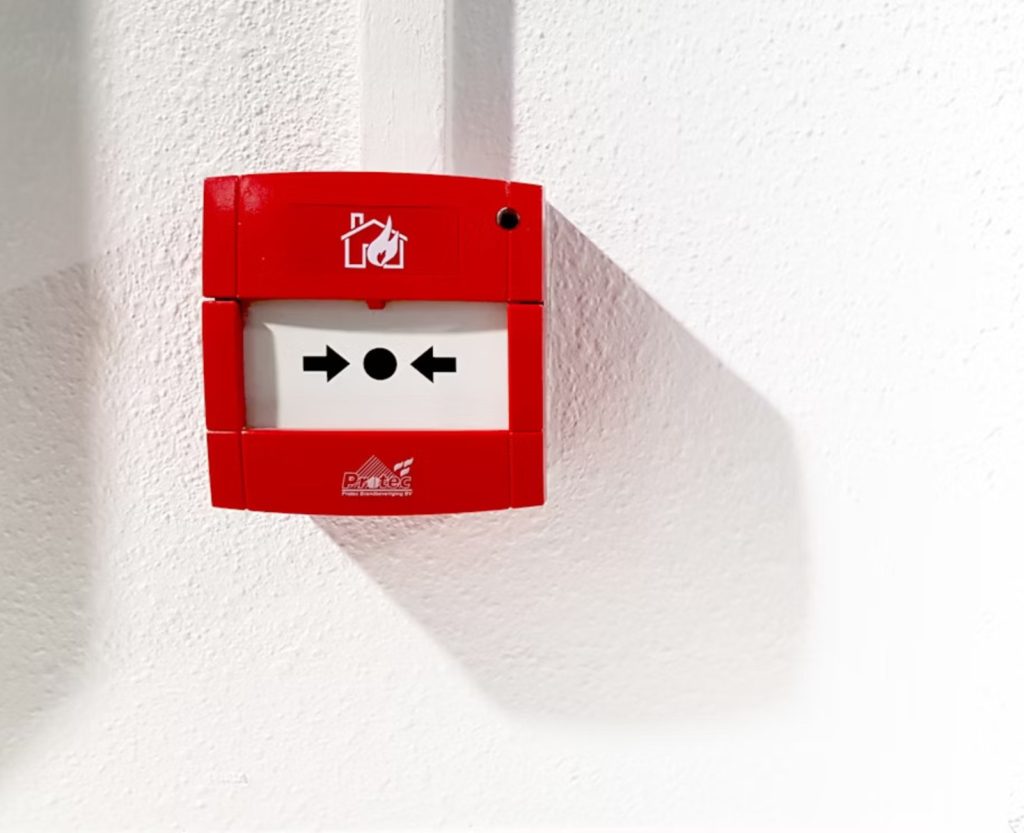Learning which types of smart contract developers you need
A smart contract developer will design, write, deploy, and optimize the smart contracts on a chosen or multiple blockchain platforms. As blockchain technologies grow, their applications also span across various use cases, and smart contracts are the machine behind many.
Most blockchain developers know how to handle their specialized smart contracts. Here’s the common types:
Defi developers
Defi developers focus on developing financial products and services that operate on blockchain platforms such as Ethereum, Binance Smart Chain, Cardano, and Solana. These financial activities include borrowing, lending, payment transactions, staking, and farming. Meanwhile, smart contracts are used to prove and document these activities. Learn more about Defi smart contract development.
NFT developers
NFT developers create unique digital assets encoded by NFT (non-fungible token) – a unique digital identifier. NFTs verify the ownership and authenticity of assets so they cannot be copied, subdivided, or substituted. All this metadata is stored on smart contracts. Therefore, without it, NFT wouldn’t exist. Learn more about NFT smart contracts.
dAap developers
dApp developers build dApps (Decentralized Applications) with their codes running on a decentralized peer-to-peer network. The benefits of dApp include transparency, privacy, and immutability due to the nature of blockchain technology. While Defi is more concerned with the financial sector (cryptocurrency), DApp extends to the social, securities, insurance, and gaming industries.
Metaverse developers
Metaverse developers design and build digital spaces using technological applications such as augmented reality, virtual reality, and blockchain. It allows users to interact and have a realistic experience like in real life.
A development company that can cover all types of smart contracts can help you easily navigate the right talent in this high demand market. Like Synodus! Learn more about our blockchain capabilities!
Example of a smart contract developer job description
Before hiring a smart contract developer, let’s look through their daily tasks and requirements.
Responsibilities: What will they do?
Writing
The developers will research the logical structure and draft the terms of the contract in accordance with project requirements. Then writing code of the contract with appropriate programming languages.
Testing
After writing the code, developers run multiple rounds of automated and manual testing to determine its efficiency and accuracy. This process also helps them detect vulnerabilities and fix errors in lines of code that could hamper the contract’s functionality and security.
Once running, the smart contract will automatically execute. You can’t make any changes (except for upgradable smart contracts), so even a small error can cause a significant loss. That’s why this step is crucial.
Optimizing
In addition to detecting errors, smart contract developers must continuously analyze and optimize smart contracts to minimize gas fees and improve their efficiency.
Integrating
For complex blockchain applications such as metaverse or dApps, smart contract developers also have the task of integrating them into the system. They must ensure the integration works smoothly and securely without affecting the entire application.
Requirements: Who should you look for?
A smart contract developer is expected to have these bellow skills and experiences:
Programming background
Programmers must master not only common programming languages such as Python, Java, JavaScript, or C++ but also blockchain-specialized languages such as Solidity, Vyper, and Yul. However, many blockchain platforms allow developers to write smart contracts using common languages such as Java or JavaScript.
Programming proficiency directly affects the security and effectiveness of smart contracts. A seasoned smart contract developer would be experienced in optimizing those codes to help minimize the gas fee as well.
Understanding of blockchain foundation
Smart contract developers should be well-versed in blockchain-related knowledge to understand how smart contracts operate and influence blockchain applications. This is the first step to becoming a smart contract developer.
Some of the key components of Blockchain include:
- Decentralization
- Immutability
- Distributed ledger
- Consensus mechanisms
- Cryptographic algorithms
- Cryptographic security
- Tokenization
- Smart contracts
Understanding of token standards/protocols
Most smart contracts are currently based on Ethereum. Some of its typical token standards are ERC-20, ERC-721, and ERC-1155. Understanding these standards and other blockchain standards helps developers build smart contracts and ensure their compatibility across different platforms and applications.

On-hand experiences in common tools and frameworks
Hands-on experience with go-to tools used in smart contract development is a must. Each blockchain platform uses a different set of tools and frameworks. Here are some commonly used ones:
- Tools: Truffle, Brownie, Remix, Hardhat
- Databases: IPFS, OrbitDB
- Libraries: Web3.Js, Ethers.Js, OpenZeppelin
Security vulnerabilities
Smart contract developers should also know about debugging and preventing vulnerabilities such as reentrancy, front-running attacks, integer overflow/underflow, and block gas limits.
Millions of dollars can be gone in a minute if one error is exposed to the hacker. Therefore, having knowledge and experience in dealing with security vulnerabilities is a bonus skill.
Smart contract developers salary
Smart contract developer salary differs across regions. Below is a summary of the average annual salary of a smart contract developer.
- North America: $140,000 to $200,000 per year
- South America: $112,000 to $150,000 per year
- Europe: $80,000 to $135,000 per year
- Oceania: $75,000 to $100,000 per year
- Asia: $68,000 to $150,000 per year
- Africa: $64,000 to $75,000 per year
In addition, salaries vary depending on the developer’s experience and skills. A junior or entry level smart contract developer with less than 3 years of experience will be offered less. They work slower and the code quality is not as good as someone at a senior level.
Here’s the detailed look of smart contract developer salary:
| Level | What they will do | Average salary |
|---|---|---|
| Entry – level | Writing smart contracts in common languages such as Rust or Solidity based on the given structure. Testing and deploying smart contracts on multiple blockchain platforms. | 80.000 USD – 120.000 USD |
| Senior | Design the structure of smart contracts. Writing, testing, and deploying smart contracts from common to niche languages. Participating in research to optimize efficiency, minimize gas costs, and enhance the security of smart contracts. Mentoring and coordinating team members if needed. Supporting deployment and scaling of smart contracts. | 250.000 USD – 300.000 USD |
Outsourcing smart contract development is the number 1 strategy to trim the cost while keeping the high quality. And Vietnam is the top destination for blockchain creation (Synodus’ offer starts at $20)! Learn how they rank on the outsourcing map!
Where to hire good smart contract developers?
Here are some common ways to seek a good fit for your project.
Jobsite
Job sites like LinkedIn, Glassdoor, and Indeed help you connect with the huge talent pool. They offer many useful tools, such as advanced filters, match recommendations, skills testing, talent insight, etc., for locating good hires.
Your job is to prepare a Job Description to post on the website. Candidates who are interested will submit their resumes through the job posting.

Yet they are best if you want to build an in-house team. Recruitment will take time, money and effort, so it’s better to think of a long-term road.
Cons:
- High labor costs.
- Candidates are limited in locations due to the requirement to work on-site.
Freelancer market
If you need immediate help on a small step, let’s say, someone to code a part of your smart contracts, freelancers can be the way to go.
The cost for a freelancer will be charged by the amount of work done, so labor costs will be reduced to a maximum compared to a long-term employee in the company.
Popular freelance platforms include Fiverr, Freelancer.com, and Upwork. Candidate reviews are also displayed for reference.
Cons:
- Not for big projects. Hiring freelance smart contract developer for a long time can lead to big hidden costs.
- Risky since they usually have low commitment and challenge to analyze their skill set accurately.
- One-man show. One person takes care of all the steps, so there is no quality guarantee.
Outsourcing
As many businesses favor, outsourcing can offer you access to a large talent pool across the globe, cut down on labor costs, and, of course, high-quality delivery (if you choose the right one).
They are suitable for both large and small projects since they take care of your project from A to Z. At the same time, you can flexibly scale your team up and down. Another thing is that outsourcing smart contract development continues beyond coding; they also offer legal and security experts.
Cons:
- Communication challenges if you opt for offshoring
- It is risky and difficult to control quality if you unluckily choose a bad partner and an unsuitable outsourcing model.
Few tips to select the right guy
Choosing the right fit from a long list of candidates can be challenging, especially when there are so many developers but not so many qualified ones. Here are some tips to evaluate a smart contract company or developer:
- When scanning their CV, look for: Have they worked with any companies with the same background as yours? What is their most skillful tech stack, and does it match what you are looking for?
- When scanning their portfolio, look at the type of smart contracts, what role they took for the project, code quality (if they’ve published it on GitHub) and the result.
- Check for referral and past client reviews if you opt for a freelance or development company.
- No matter if you are building an in-house team or searching for a partner, an interview is always a must to learn a smart contract developer’s capability.
Work with top 1% smart contract developers from Vietnam
Vietnam is currently the top outsourcing contender for blockchain development. They are the creator of Axie Infinity and many famous NFT games, Metaverse and dApps.
And Synodus is proud to be one of the leading forces!
With 250+ professional developers, we work toward in-depth monetization of smart contracts, making sure it’s error-free, safe, optimized and fast.
Our smart contract development services offer
Don’t just hire smart contract developers. Expand your team with our blockchain engineers and legal experts as well:
- Smart contract development: We architect logical smart contracts for different blockchain applications, from NFT marketplace, dApps, Digital wallet, DeFi to Real-world asset tokenization.
- Smart contract audit: Making sure your smart contract is immune to cyber threats, protecting all metadata and transactions with automated and manual testing. The best part? We also check its structure to make sure it’s legally binding.
- Smart contract optimization: Enhancing your code performance to cut down gas fee, fasten the transaction time and of course, improve security.
Our team works with a plethora of blockchain platforms, from private, public to permissioned.

How our team is the right fit
With 88% of client satisfaction and 5 stars on Clutch, here’s why our clients adore us:
- An all-around team where developers work closely with legal experts.
- Smooth execution and no fog of tech communication. We prioritize transparency and commitment, as each developer only works on one project at once.
- Adhere to many security and programming compliances such as SOC 2 Type I & II, ISO 27001, GPDR, AML/KYC, FISMA, PSD2, PCI DSS.
- No hidden charge, Free consultation and Flexible hiring models.
Still not convinced?
Working with a real estate powerhouse, we have successfully integrated smart contracts to supercharge a real estate tokenization solution.
Or when we build a robust smart contract mechanism for a P2P NFT and Cryptocurrency Lending that can process 300,000 transactions per second with a low gas fee.
How you can work with us
The key to a successful collaboration is an aligned approach and working process. As promised, we’re open to discussing anything that suits you best!
From fixed price, dedicated team, time & materials to build – operate – transfer model!
Our smart contract developers are ready!
How useful was this post?
Click on a star to rate it!
Average rating / 5. Vote count:
No votes so far! Be the first to rate this post.




